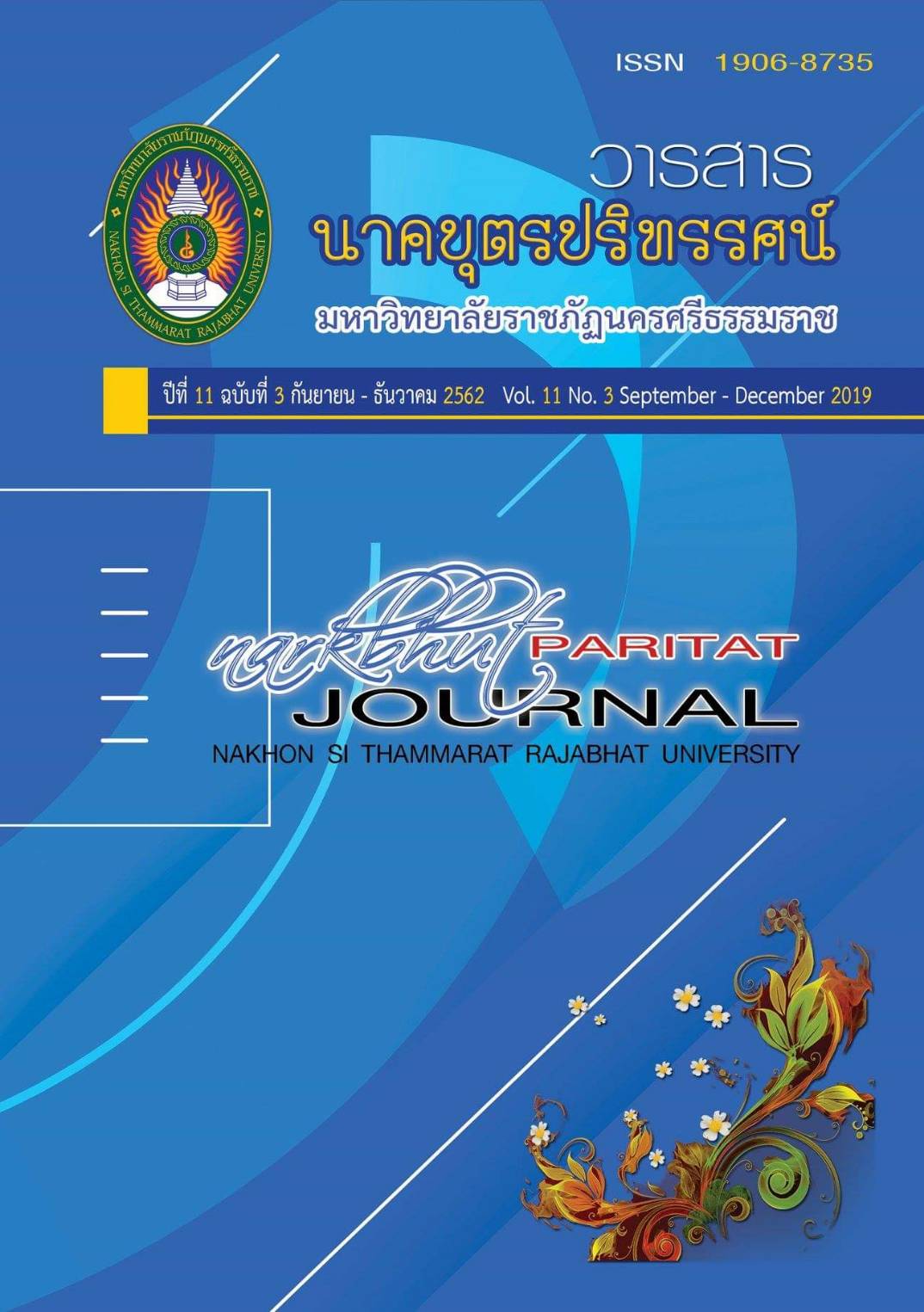ปัญหาและอุปสรรคทางกฎหมายเกี่ยวกับการขายสินค้ามือสองอันมีลิขสิทธิ์ศึกษาเฉพาะโสตทัศนวัสดุและวีดิทัศน์ Legal Problem and Obstracle on The Sale of Used Copyright Products : Case Study of Audiovisual Materials Video CD
Main Article Content
บทคัดย่อ
วิทยานิพนธ์นี้มีวัตถุประสงค์เพื่อคุ้มครองการขายสินค้ามือสองอันมีลิขสิทธิ์ในงานโสตทัศนวัสดุและวีดิทัศน์ ประเด็นปัญหาหลักการสิ้นสิทธิของไทยเปรียบเทียบกับสหรัฐอเมริกา หลักการสิ้นสิทธิในงานโสตทัศนวัสดุและวีดิทัศน์ในการขายสินค้ามือสองภายใต้พระราชบัญญัติลิขสิทธิ์และพระราชบัญญัติภาพยนตร์และวีดิทัศน์ คำนิยามของผู้ประกอบการในงานโสตทัศนวัสดุและวีดิทัศน์
จากการศึกษาพบว่า หลักการสิ้นสิทธิตามพระราชบัญญัติลิขสิทธิ์ของไทยกับสหรัฐอเมริกาอยู่บนพื้นฐานเดียวกันคือหลักการสิ้นสิทธิระหว่างประเทศแต่ไทยมิได้นำมาใช้ในงานโสตทัศนวัสดุและวีดิทัศน์ คือไทยยังมีข้อยกเว้นการคุ้มครองสินค้าอันมีลิขสิทธิ์อยู่ ในส่วนการขายสินค้ามือสองอันมีลิขสิทธิ์ภายใต้พระราชบัญญัติลิขสิทธิ์ตามหลักการสิ้นสิทธิซึ่งสิทธิในสินค้าสิ้นไปเมื่อมีการจำหน่ายออกครั้งแรกเพราะเจ้าของสิทธิได้รับประโยชน์แล้วคงไว้เฉพาะความเป็นเจ้าของผลงานและกรรมสิทธิ์ตกเป็นของผู้รับโอน แต่การขายสินค้ามือสองในงานโสตทัศนวัสดุและวีดิทัศน์ยังถือเป็นเรื่องผิดกฎหมายเพราะมีพระราชบัญญัติภาพยนตร์และวีดิทัศน์คุ้มครองอยู่ หากผู้ขายไม่มีใบอนุญาตถือเป็นการละเมิดและไม่ได้กรรมสิทธิ์ในสินค้านั้น ในส่วนพระราชบัญญัติภาพยนตร์และวีดิทัศน์ไม่ได้กำหนดคำนิยามคำว่า “ผู้ประกอบการ” ไว้จึงทำให้การตีความว่าการเป็นผู้ประกอบการต้องมีลักษณะอย่างไรทั้งนี้ก่อให้เกิดปัญหาการใช้กฎหมายไม่เป็นไปตามวัตถุประสงค์และเจตนารมณ์
จากการศึกษาขอเสนอแนะว่า ควรนำหลักการสิ้นสิทธิตามพระราชบัญญัติลิขสิทธิ์มาใช้กับพระราชบัญญัติภาพยนตร์และวีดิทัศน์เพื่อให้ครอบคลุมสินค้าเช่นเดียวกับสหรัฐอเมริกา ควรนำหลักกรรมสิทธิ์มาใช้กับผู้ซื้อสินค้ามาโดยสุจริตในงานโสตทัศนวัสดุและวีดิทัศน์ ควรเพิ่มเติมบทบัญญัติคำนิยามคำว่า“ผู้ประกอบการ”ในมาตรา 4 แห่งพระราชบัญญัติภาพยนตร์และวีดิทัศน์
Abstract
This thesis has objectives to protect sales of second hand goods having copyright in audiovisual material and video. There are problems of end of right principles of Thailand comparing with the United States of America. The end of right principles in audiovisual material and video for sales of second hand goods are under the Copyright Act and the Film and Video Act. Definition of entrepreneurs is in audiovisual material and video.
According to the study, the researcher found that the end of right principles under the Copyright Act of Thailand and the United States of America are based on the same basis that is principle of end of right internationally, but Thailand did not use the principles of end of right in audiovisual material and video. Thailand also has an exception to the protection of goods having copyright. In sales of second hand goods having copyright under the Copyright Act, according to the end of right principles, the right in goods ends when product is sold in the first time, because the owner of product has received benefit, he/she still has the right to retain the status of being owner of the work. The ownership of the work falls to the transferee; but the sales of second hand goods in audiovisual material and video is also illegal because of the protection of the Film and Video Act. If the seller does not have a license, the seller is considered as the seller violates the law and is not owner of ownership in the product. Regarding the Film and Video Act, there is no definition of the word "entrepreneur"; therefore, interpretation of entrepreneur to know who is entrepreneur causes problems of using of the law not to comply with the objectives and intention.
From the study, the researcher recommended that the end of right principles under the Copyright Act should apply to the Film and Video Act to cover the goods like the United States of America. The ownership principle should be applied to buyers of goods honestly in audiovisual material and video. There should be additional provisions of the definition of "entrepreneur" in Section 4 of the Film and Video Act.
Article Details
เอกสารอ้างอิง
Hmemaratchata, C. (2005). Characteristics of Intellectual Property Law (Basic general
knowledge) (5th ed). Rule of Law Publishing, Bangkok. (In Thai)
Kuanphot, C. (2012). International law on copyright, patents and trademarks. (5th ed).
Rule of Law Publishing, Bangkok. (In Thai)
Phetchsanghar, N. (2015). Principles of exhaustion of rights and their effect on consumers in
developing countries: a case study of textbooks. Master of Laws Thesis Jurisprudence Faculty of Law Chulalongkorn University. Bangkok. (In Thai)
Phianawattanakulchai, A. (2012). Legal Problems and Obstacles in Enforcing the Film and
Video Act 2008. Master of Laws Thesis. College Sriprathum university Chonburi
Campus. (In Thai)
Suwanawet, N. (2013). The problem of the end of rights: studying comparable candles In the
case of copyright and rights law. Independent Study, Master of Law College Bangkok
University. (In Thai)
Suphapholsiri, T. (2010). Principles of copyright law and protection of foreign copyright work.
Rule of Law Publishing, Bangkok. (In Thai)


